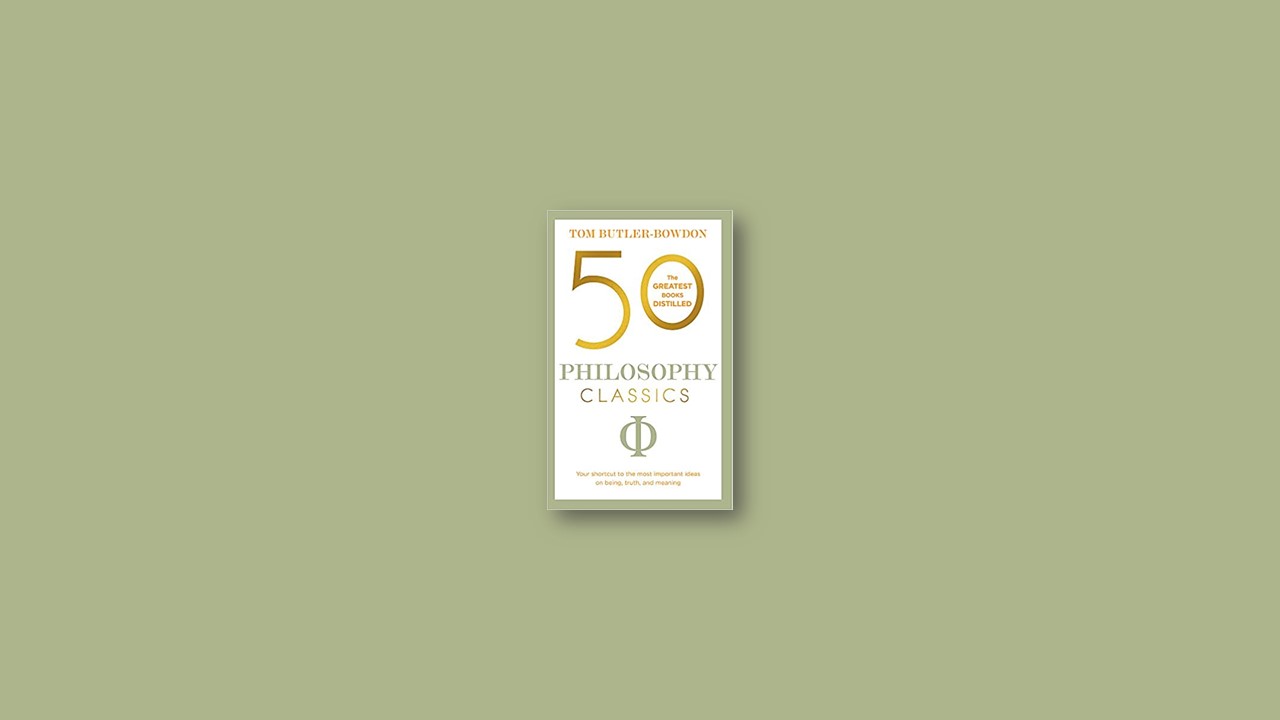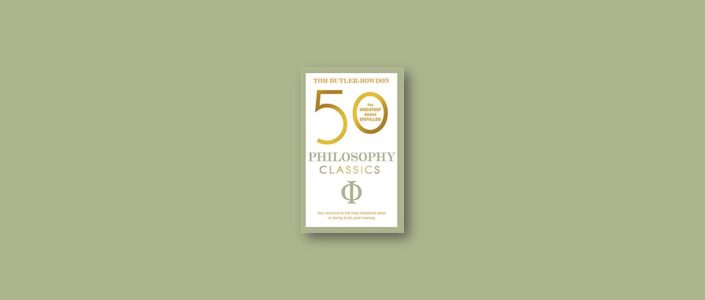The Human Condition (1958)
The nature of being human is to do the unexpected, and every birth carries with it the possibility of a changed world.
Nicomachean Ethics (4th century BC)
Happiness comes from expressing what we have rationally decided is good for us over the longer term. Happiness is not pleasure, but a by-product of a meaningful life.
Language, Truth and Logic (1936)
Metaphysics, aesthetics, ethics, and theology are all meaningless subjects, because nothing that is said in them can ever be verified.
The Ego Trick (2011)
The brain and body provide us with a strong and continuous sense of self, which gives us freedom to create who we are.
Simulacra and Simulation (1981)
We no longer live in a world where signs and symbols point to truth; they are the truth.
The Second Sex (1949)
The concept of “Other” helps us understand the position and power of women through history.
Principles of Morals and Legislation (1789)
A just society is most likely to be achieved by using an objective calculus of maximizing pleasure and minimizing pain.
Creative Evolution (1907)
We want to see the universe in mechanistic and determined terms, but reality, because it involves life and time, is in fact fluid and constantly open to possibility.
Wholeness and the Implicate Order (1980)
The human way of perceiving separate objects and creating categories is an illusion. Reality is in fact unbroken and undivided, and all phenomena are simply perturbations in this single whole.
Understanding Power (2002)
In democracies, power silences dissent through the abuse of language.
On Duties (44 BC)
What is right and what is expedient can never be separate things.
Analects (5th century BC)
We are born a human, but we become a person through fulfilling a responsible role in society in a selfless way.
Meditations on First Philosophy (1641)
I can doubt that everything I perceive is real, but the fact that I doubt tells me that I think, that I have consciousness. And if I have this, I must exist.
Fate (1860)
The case for us being simply products of fate is strong, yet paradoxically it is only in accepting it that we can realize our creative power.
Letters (3rd century BC)
We can achieve tranquility and happiness by letting go of irrational beliefs and fears and living simply.
The Order of Things (1966)
Every age has unconscious assumptions about how the world is ordered, making the flavor of knowledge quite different from one era to another.
On Bullshit (2005)
Bullshit pervades our culture and we need to know how it is different from lying.
Free Will (2012)
Our actions are the result of our brain states at any moment, which are in turn subject to prior causes. It is useless to blame people for what they are.
Phenomenology of Spirit (1807)
The real story of human development is not scientific advance, or “discovery of the world,” but rather the awareness of consciousness itself and the way it seeks expression through people, politics, art, and institutions.
Being and Time (1927)
Human existence is a mystery, and the authentic person is one who reflects on that mystery and yet lives in the real world, making the most of their possibilities.
Fragments (6th century AD)
Everything changes all the time, yet there is a hidden harmony to the universe.
An Enquiry Concerning Human Understanding (1748)
We can never assume that an effect is the result of a certain cause, or that a certain cause will have a definite effect. Humans like to see patterns and interpret stories from events, but there is no causal necessity between objects (or at least not as far as the human senses are able to tell).
Pragmatism (1907)
A belief or idea has value only if it “works” – that is, changes our world in some way. Other notions and ideas, however attractive or elegant, should be dismissed.
Thinking, Fast and Slow (2011)
Because the way we think determines what we know, psychological research plays an important part in the search for philosophical truth.
Critique of Pure Reason (1781)
In a rational world based on science, is there a place for moral law?
Fear and Trembling (1843)
Total trust in an absolute or spiritual reality is not a weakness, but is life’s highest expression.
The Structure of Scientific Revolutions (1962)
Rather than a linear accumulation of facts, knowledge can be seen as the replacement of one worldview with another.
Theodicy (1710)
The world that exists must be the best of all possible worlds.
Essay Concerning Human Understanding (1689)
All our ideas, simple or complex, originate in sensory experience. We are blank slates; morality and character are not innate.
The Prince (1513)
The good ruler will build a strong and successful state that provides prosperity and peace for its citizens; maintaining it sometimes requires action at odds with the morals of the day.
The Medium Is the Massage (1967)
The mass media and communications technology are not neutral inventions but change the way we are.
On Liberty (1859)
Unless a person’s actions cause direct harm to others, they must be allowed. The priority in any open society must be freedom, not policies that purport to be for people’s own good.
Essays (1580)
Most forms of knowledge are a conceit; it is a big enough task trying to know something of ourselves.
The Sovereignty of Good (1970)
The efforts we make to improve ourselves morally are concrete. Trying to make some empirical measure of this would be ridiculous, and cannot lessen or undermine its reality.
Beyond Good and Evil (1886)
Human beings have a natural and healthy urge to be creative and powerful, and morality only suppresses and distorts this.
Pensées (1660)
As we have little to lose by a belief in a higher power, and plenty to gain if it is true, it is rational that we believe.
The Republic (4th century BC)
What you believe to be true may be only a poor and distorted reflection of reality. Philosophy opens the door to higher knowledge, which can be used to serve your state and community.
The Logic of Scientific Discovery (1934)
We advance in understanding not by proving theories, but by attempting to falsify them.
A Theory of Justice (1971)
The best societies are those that do not simply offer personal freedom, but lessen the lottery of life by giving fair chances for all.
The Social Contract (1762)
A free society raises up and ennobles its citizens, but also entails giving up some of our personal liberty for the needs of the whole.
The Conquest of Happiness (1930)
Happiness comes from throwing ourselves into life, which generally lessens the preoccupation with the self – a primary cause of unhappiness.
Justice (2009)
The purpose of politics is not simply to protect economic or personal freedom, it should make us better people and enshrine moral values. There are things money cannot buy.
Being and Nothingness (1943)
There is no essential nature at the heart of our being. We are free to invent a self and create a life as we wish.
The World as Will and Representation (1818)
The advanced person tries to live less according to the blind urges of their will (or ego) and more in attunement with whatever is eternal and beyond the self.
The Life You Can Save (2009)
Giving to those in need on a systematic basis is an important part of living a good life.
Ethics (1677)
Free will is an illusion, but by mastering our emotions and appreciating the perfection of universal laws we can lead a good life.
The Black Swan (2007)
We want to make the world seem an orderly place, but the frequency of truly unexpected events should tell us that we do not really know what causes things.
Philosophical Investigations (1953)
Language is about meaning, not words. Yet language cannot express every kind of meaning.
Living in the End Times (2010)
Capitalism has become an ideology that does not allow alternatives, yet it is ill equipped to face major environmental, scientific, and social problems.


